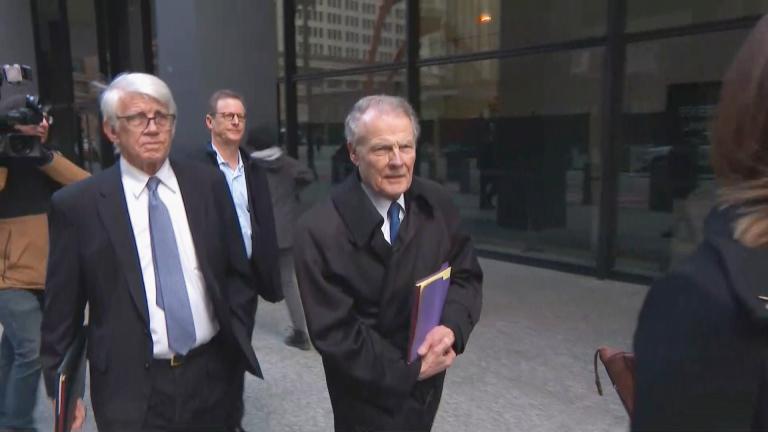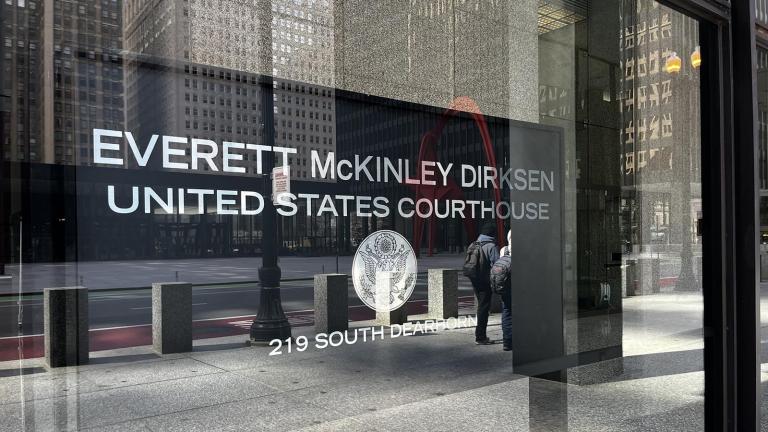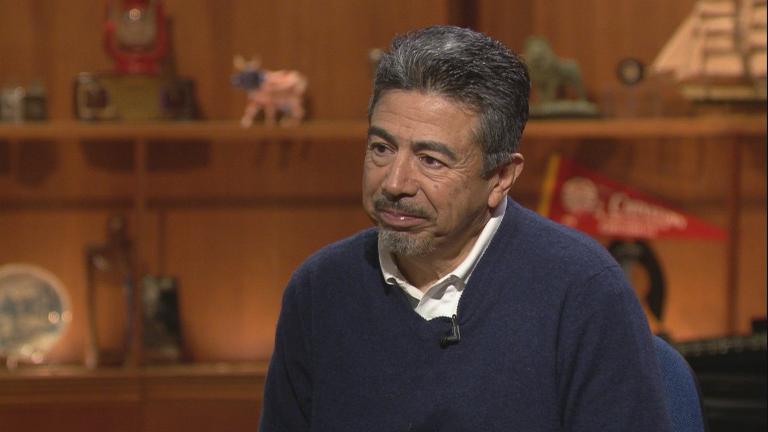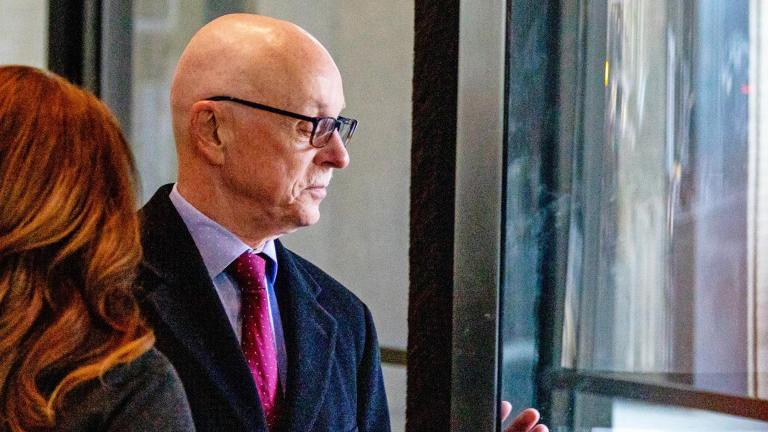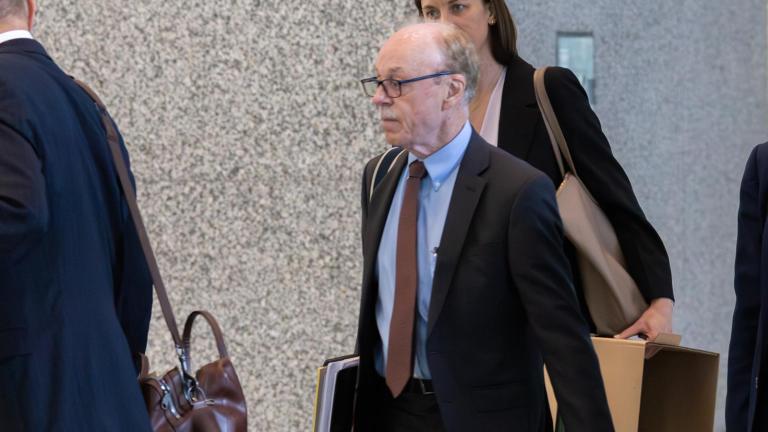 (Michael Izquierdo / WTTW News)
(Michael Izquierdo / WTTW News)
The four former Commonwealth Edison officials convicted last year of conspiring to bribe ex-Illinois House Speaker Michael Madigan will not be sentenced until at least next month, but the delay could last much longer.
U.S. District Judge Harry Leinenweber on Thursday said his ongoing health issues will prevent him from returning to Chicago until at least late February. That means sentencing dates for Madigan’s longtime confidant Michael McClain, ex-ComEd CEO Anne Pramaggiore, retired ComEd executive John Hooker and former ComEd consultant Jay Doherty will be on hold until at least that time.
The four were each convicted last May of bribery conspiracy, bribery and willfully falsifying the utility giant’s books.
Federal prosecutors argued the four did this through a number of means, including paying Madigan allies as ComEd subcontractors, who in turn would actually do little or no work for the utility company. They also allegedly offered a lucrative contract to a law firm run by Madigan ally Victor Reyes and fought to get Juan Ochoa appointed to the ComEd board of directors at the former speaker’s behest.
This was done, prosecutors said, in order to curry Madigan’s support on favorable legislation in Springfield.
But defense attorneys are still pushing for a longer delay while the U.S. Supreme Court hears a separate case that could impact federal bribery statutes at issue in the ComEd case.
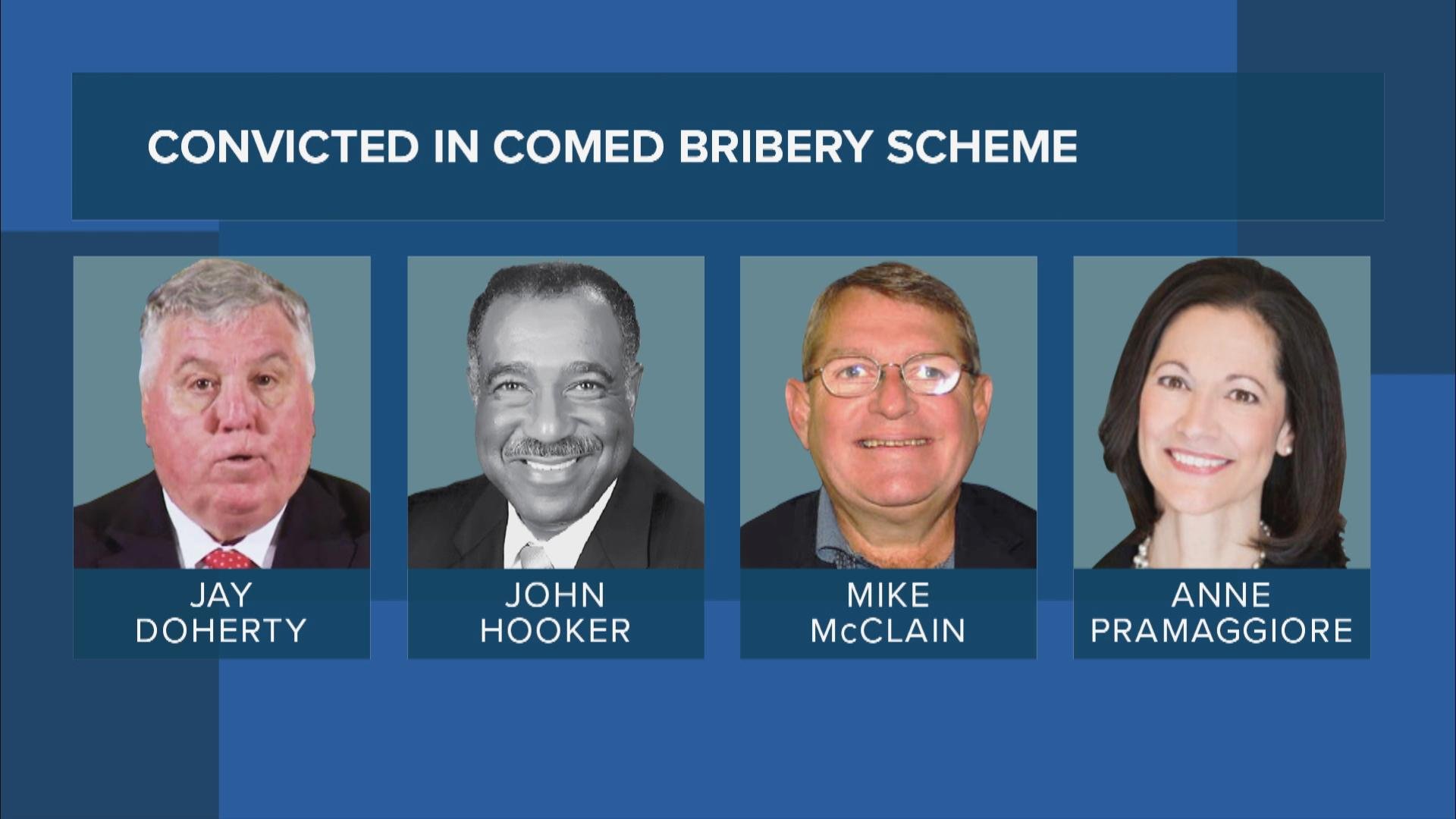 Ex-City Club of Chicago president and former ComEd consultant Jay Doherty, retired ComEd executive John Hooker, former ComEd lobbyist Mike McClain and ex-ComEd CEO Anne Pramaggiore were found guilty. (File photos)
Ex-City Club of Chicago president and former ComEd consultant Jay Doherty, retired ComEd executive John Hooker, former ComEd lobbyist Mike McClain and ex-ComEd CEO Anne Pramaggiore were found guilty. (File photos)
According to the defense, the case before the Supreme Court (James E. Snyder v. U.S) could determine whether the statute criminalizes only bribery or also reaches gratuities — defined as payments in recognition of actions a state or local official has already taken or committed to take, without any quid pro quo agreement to take those actions.
They’ve argued the high court’s ruling, which is expected sometime this summer, has the potential to “upend” the verdict in the ComEd case. Defense attorneys claimed that if the law is changed, and requires that a quid pro quo be proven beyond a reasonable doubt, it would raise concerns about whether the ComEd jury was properly instructed.
“No matter what the Supreme Court rules, the convictions are not going to stand,” attorney Scott Lassar, who represents Pramaggiore, said during Thursday’s hearing. “So the court should not take the time to decide the post-trial motions now, nor to go through sentencing … when it is all but certain that there’s at least gonna be a retrial, if not an acquittal for the defendants.”
Federal prosecutors strongly disagree with that notion. Assistant U.S. Attorney Amarjeet Bhachu called Lassar’s proclamation “substantially incorrect,” and argued the defendants should be sentenced according to how the law is currently written.
Bhachu said there’s nothing in the existing statute about quid pro quos, and what is actually penalized under that law is “corruptly offering things to people.”
“It requires somebody to corruptly offer or give,” he said. “It does not require corrupt acceptance, which is what a quid pro quo is. It requires, instead, an intent to engage in that type of behavior.”
No matter what the Supreme Court decides, Bhachu argued that it would not affect the verdict in this case.
But a separate judge already agreed to push back Madigan’s upcoming racketeering and bribery trial — which also deals in part with the ComEd bribery allegations — from April until October for the same reason, ruling that the attorneys in that case “have to know what the rules are” before a trial can begin.
Leinenweber did not rule on the matter in the ComEd case Thursday, but instead ordered both sides to file briefs outlining their arguments before he issues his decision.
The four defendants had been scheduled to be sentenced this month, but those hearing dates had already been stricken. They face up to five years in prison on the bribery conspiracy charge, up to 10 years on each bribery charge and up to 20 years in prison on each count of falsifying records.
Contact Matt Masterson: @ByMattMasterson | [email protected] | (773) 509-5431

